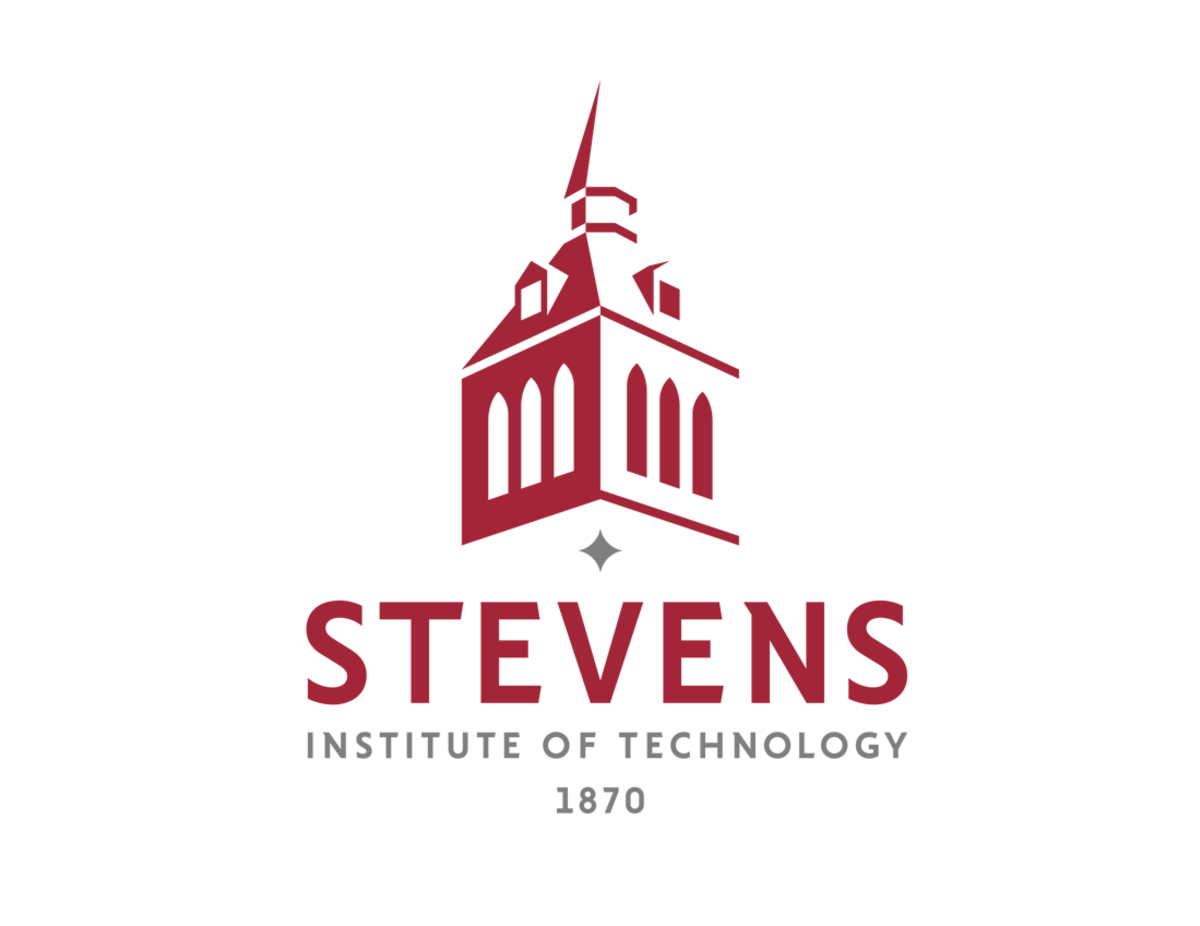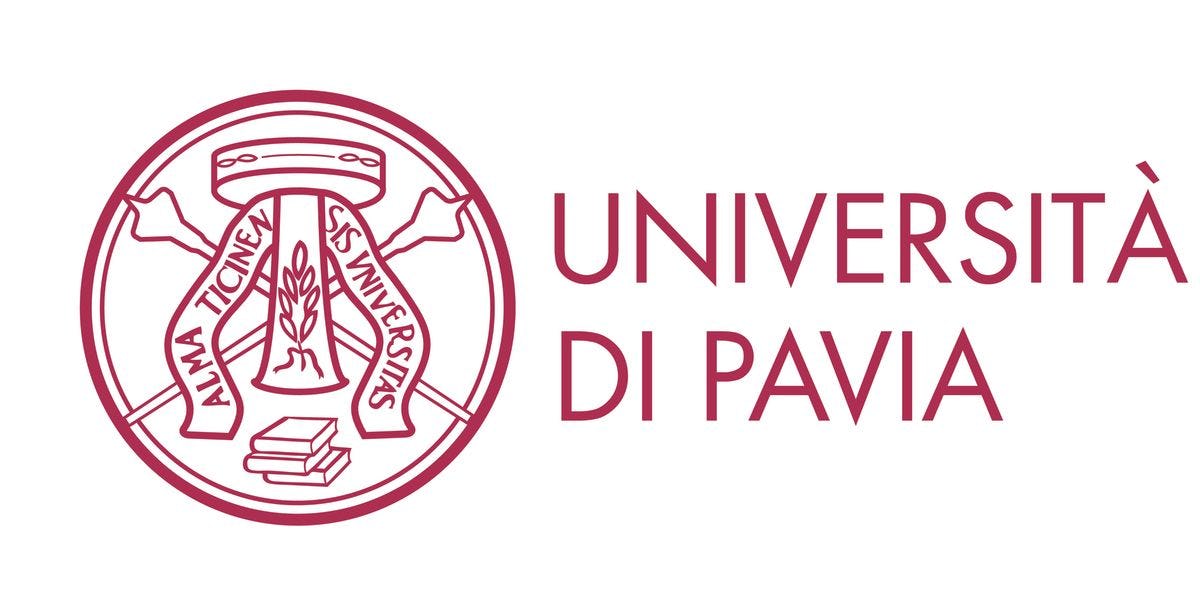
Master's in Finance and Master's in Financial Technology & Analytics Dual Degree Program
Program Details
Degree
Master of ScienceSchool
School of BusinessDepartment
School of Business Graduate ProgramAvailable
On campusStevens School of Business and the University of Pavia offer this highly-coordinated dual degree program empowering you with a comprehensive skill set that merges traditional finance knowledge with cutting-edge technology and data analytics expertise. At the end of the program, you will get a Master’s degree in Finance from the University of Pavia and a Master’s degree in Financial Technology & Analytics from the Stevens School of Business.
In the first year, you will enroll full-time at the University of Pavia, taking courses within the M.S. in Finance program (120 ECT units). Then, you will enroll full-time at the Stevens School of Business, taking courses within the MS in Financial Technology and Analytics program (24 credits). You will receive a diploma from each school after completion (approximately 24 months).
Program Benefits:
Adaptability: FinTech and Analytics are reshaping the industry, and this dual degree ensures graduates are well-equipped to navigate these changes.
Innovation in Finance: Be positioned to lead FinTech innovations like blockchain, AI-driven algorithms, and more.
Data-Driven Decision Making: Professionals who understand data analytics can make informed decisions, develop predictive models, and derive insights that enhance financial strategies.
Career Opportunities: Graduates can pursue a wide range of career paths in traditional finance sectors, FinTech firms, investment banks, consulting, data analytics companies, and more.
Careers:
Financial Analyst
FinTech Consultant
Quantitative Analyst
Finance Data Scientist
Compliance Officer
Blockchain Specialist
Stevens Institute of Technology
Stevens Institute of Technology is a premier, private research university in Hoboken, New Jersey, overlooking the Manhattan skyline. Since its founding in 1870, technological innovation and entrepreneurship have been the hallmarks of Stevens’ education and research. Within the university’s three schools, Stevens prepares its more than 8,000 undergraduate and graduate students for an increasingly complex and technology-centric world. Our exceptional students collaborate closely with world-class faculty in an interdisciplinary, student-centric, entrepreneurial environment, readying them to fuel the innovation economy. Academic and research programs spanning finance, computing, engineering and the arts expand the frontiers of science and leverage technology to confront the most challenging problems of our time. Stevens is consistently ranked among the nation’s leaders in ROI and career services and is in the top 1% nationally of colleges with the highest-paid graduates.
About The Stevens M.S. Financial Technology and Analytics Program
Steven School of Business MS Financial Technology and Analytics degree covers a range of topics in financial technology and data science, including financial technology, blockchain technologies and decentralized finance, digital payment technologies and trends, applied statistics with applications in finance, introduction to financial risk management, and time series with applications to finance or advanced financial econometrics. You will be well-equipped to lead financial technology and data science teams in both start-ups and established financial firms.
This dual degree program will put you in the Financial Technology and Machine Learning concentration which is focused on the newest emerging technologies.
Courses (24 Credits)
Pavia 509897 can be transferred to replace Stevens FE535 and Pavia 509894 can be transferred to replace Stevens FA541.
Prerequisite Courses: Financial and Managerial Accounting, Financial Management, and Statistical Models.
FE 513 Practical Aspects of Database Design (1)
The course provides a practical introduction to SQL databases and Hadoop cluster systems as available in the Hanlon Financial Systems Lab. Students will receive hands on instruction about setting up and working with databases. Most of the software will be introduced using case studies or demonstrations, followed by a lecture of related fundamental knowledge. The course covers SQL, NoSQL, and database management systems. The course will cover accessing databases using API.
FA 582 Foundations of Financial Data Science (2)
This course provides an overview of issues and trends in data quality, data storage, data scrubbing and data flows. Topics include data abstractions and integration, enterprise-level data issues, data management issues, similarity and distances, clustering methods, classification methods, text mining, and time series. Furthermore, the Hadoop-based programming framework for big data issues will be introduced, along with any governance and policy issues.
Corequisite: FE 513
FA 590 Statistical Learning in Finance (3)
Introduction to information theory: the thermodynamic approach of Shannon and Brillouin. Data conditioning, model dissection, extrapolation, and other issues in building industrial strength data-driven models. Pattern recognition-based modeling and data mining: theory and algorithmic structure of clustering, classification, feature extraction, Radial Basis Functions, and other data mining techniques. Non-linear data-driven model building through pattern identification and knowledge extraction. Adaptive learning systems and genetic algorithms. Case studies emphasizing financial applications: handling financial, economic, market, and demographic data; and time series analysis and leading indicator identification.
FE 542 Time Series with Applications to Finance (3)
In this course the students will learn how to estimate financial data model and predict using time series models. The course will cover linear time series (ARIMA) models, conditional heteroskedastic models (ARCH type models), non-linear models (TAR, STAR, MSA), non-parametric models (kernel regression, local regression, neural networks), non-parametric methods of evaluating fit such as bootstrap, parametric bootstrap and cross-validation. The course will also introduce multivariate time series models such as VAR.
FA 550 Data Visualization Applications (3)
Effective visualization of complex data allows for useful insights, more effective communication, and making decisions. This course investigates methods for visualizing datasets from a variety of perspectives in order to best identify the best solution for a given task. Students will use a number of tools to refine their data and create visualizations, including: R and associated visualization libraries, Tableau 2020, Gephi, and web-based applications.
FA 595 - Financial Technology - 3 Credits
This course covers emerging topics in the area of financial technology and also allow students to develop practical programming, statistics, and mathematical skills that are valued in the Fintech industry. We will explore topics from both theoretical and practical perspectives in the areas of digital currency and blockchain technologies, automated wealth management, digital lending, peer-to-peer applications including payments and insurance, machine learning financial applications.
FA 690 Machine Learning in Finance (3)
This course focuses on traditional machine learning algorithms (random forests, support vector machines and conditional random fields) as well as recent developments in deep neural networks focusing primarily on the TensorFlow library. The distinctions between various types of algorithms (supervised, unsupervised and reinforcement learning) are developed, as well as the relationship between the quality of the data and complexity of the model.
FA 631 Investment, Portfolio Construction and Trading Analytics - 3 Credits
This course explores how to apply fundamental machine learning models to predict financial time series and solve financial problems. Some of the financial applications explored are algorithmic trading, model calibration, portfolio optimization and risk management.
Prerequisites: Any of BIA 656, FE 590, FE 690, MIS 637 or CS 559
FA 900 Master's Thesis in Financial Analytics - 3 Credits
A minimum of six credit hours is required for the thesis. Hours and credits to be arranged. You will need both an advisor and a reader to complete this course; interested students should contact their academic advisor for complete details.
The University of Pavia
The University of Pavia is one of the oldest universities in the world founded in 1361 and offering degree courses in all fields of studies Students are welcomed into the friendly and dynamic atmosphere of the city campus full of culture, enriching their life. The university is an active promoter of research in collaboration with the world’s most prestigious academic institutions and is a leader toward adaptation to changes and search of new paths to explore and new life changing discoveries to be made.
About the Pavia M.S. in Finance Program
The Master Program in Finance is for students pursuing advanced knowledge in the field of quantitative finance from an international perspective. It is based on a collaboration among the Departments of Economics and Management, Mathematics, Physics.
You will acquire theory and practice in financial principles, tools, and techniques that position you for a rewarding career in finance. You will learn how to analyze financial markets, use and structure financial products, and be able to make optimal and strategic decisions in an uncertain environment. The Master in Finance lays the foundation for the understanding of quantitative methods most commonly used in finance worldwide, but it has also an applied focus and you will develop programming skills to meet the needs of an industry that is becoming increasingly technological.
Courses
View more details on University of Pavia's M.S. Finance program. Please note: ECTS is the European credit system. 2 ECTS = 1 credit.
Courses (120 ECTS)
509892 - Economic Models (9 ECTS)
The course aims at providing some basic knowledge on some fundamental economic models which can be considered as preliminary to further studies in Finance.
509897 - Applied Finance (6 ECTS)
509894 - Econometrics (6 ECTS)
The objective of this course is to provide the students with sound knowledge of the theoretical foundations of econometric methods. The course will cover topics as models specification, assumptions and formal derivation, testing and interpretation. The course will focus mainly on the linear regression model. At the end of the course, students will be able to understand the inferential and interpretative aspects of the econometric approach to data analysis. Students will be able to specify, estimate and interpret regression models under various scenarios and to carry out hypothesis testing for the empirical validation of economic theories.
509899 - Asset Pricing And Macroeconomics (9 ECTS)
Can be transferred from Stevens FA631 and FE542
508647 - Capital Markets And Eu Company Law (6 ECTS)
The main goal of the course is that of introducing the students to the topic of the corporate governance in Public companies as business firms whose shares are listed on Stock Exchange Markets and typically exposed to potential severe and multiple conflict of interests. Indeed, Public Companies are the organizational firm of medium/large enterprises, which raise their capital on (international) stock exchange markets; involve many and widely (supranational) spread interests (investors, employees, creditors, customers, ecc.); intrinsically bear a systemic risk. Therefor good governance of Public Companies is necessary for efficient allocation of resources and for general growth; it requires (inter alia) appropriate and complex rules and standards of law; appropriate legal statutes must be tailored combining a “supranational approach” (uniformity of rules/standards/practices across national jurisdictions) with a “domestic oriented” attention (no “one size fits all” principle).
509898 - Statistics For Finance (9 ECTS)
Can be transferred from Stevens FE590 and FA690
507903 - Firm Valuation And Capital Market Instruments (6ECTS)
The course has two main objectives. On one side to illustrate the topic of firm valuation. On the other to give an idea of financial instruments negotiated in financial markets, grouped in asset classes. At the end of the course, students will be able to operate the valuation of a firm using the DCF and market multiples. At the same time, students should be able, at the end of the course, to understand the main features of the most important asset classes.
504838 - Financial Econometrics (9 ECTS)
Can be transferred from Stevens FE542 and FA595
509900 - Laboratory on Financial Management (3 ECTS)
509893 - Topics In Portfolio Management (6 ECTS)
The course aims to illustrate some financial methods and models using Excel spreadsheets in order to formulate rational procedures yielding optimal and efficient solutions for portfolio management. The main field in which calculations and analyses are made is the Equity asset class, starting from basic data capable of providing a comprehensive overview of a single stock and of its relationship with the whole market. Integrating all results achieved, the goal is to provide students with the essential concepts needed to value a listed stock and to build and manage an equity portfolio, along with presenting and analyzing quantitative data with the software tool. They will also be capable of elaborating basic short-investment cases, to discuss both single stocks, on the basis of common analytical measures, and equity portfolio choices, illustrating the rationale for a quantitative allocation, following risk/return efficient concepts, in line with professional standards used in the financial community. All analyses are focused on practical examples and applications, linked to the stock market current situation, and supported by some useful techniques, utilizing common database and spreadsheet calculations. Students are strongly encouraged to participate actively to the lectures.
504844 - Probability And Stochastic Processes (9 ECTS)
This is a course on Probability and Stochastic Processes, having economic and financial applications in view. Accordingly, after introducing some basic notions of probability theory (including conditional expectation), lectures will focus on those processes which are popular in finance, including martingales, sub-martingales, Brownian motion and exponential martingale. As far as possible, technicalities are avoided. Various exercises and applications will be discussed as well. At the end of the course the Student will be able to deal with the basic tools of stochastic analysis necessary to attend the course of Quantitative Finance.
504845 - QUANTITATIVE FINANCE (6 ECTS)
The aim is to give some fundamental notions about a probabilistic approach to some financial problems, making use of the theory of stochastic processes.
509895 - NUMERICAL OPTIMIZATION AND DATA SCIENCE (6 ECTS)
This course will review the theory and applications of Data Analysis and Numerical Optiization, illustrating the main results and the applications of the theory to practical problems.
500000 - Thesis (24 ECTS)
Can be transferred from Stevens FA900

